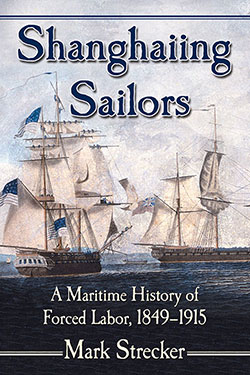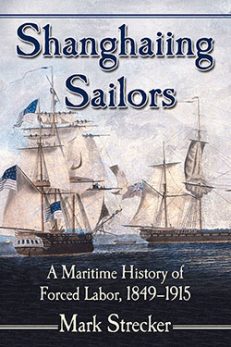Shanghaiing Sailors
A Maritime History of Forced Labor, 1849–1915
$39.95
In stock
About the Book
“Shaghaiing,” or forcing a man to join the crew of a merchant ship against his will, plagued seafarers the world over between 1849 and 1915. Perpetrators were known as “crimps,” and they had no respect for a man’s education, social status, race, religion, or seafaring experience. The merchant ships were involved in the opium, tea and gold trades, and the practice was spurred by the opening of the Suez Canal. A major reason for it was a shortage of sailors and the unwillingness of seamen to sail on certain types of ships. They suffered from great deprivations, all for a paltry sum usually squandered during shore leave. Navies and pirates had their own form of shanghaiing called impressment.
This work explores the rich history of shanghaiing and impressment with a focus on victims and also considers the 19th century seafarer and the circumstances that made shanghaiing so lucrative.
About the Author(s)
Bibliographic Details
Mark Strecker
Format: softcover (6 x 9)
Pages: 260
Bibliographic Info: 45 photos, 8 maps, notes, bibliography, index
Copyright Date: 2014
pISBN: 978-0-7864-9451-4
eISBN: 978-1-4766-1576-9
Imprint: McFarland
Table of Contents
Table of Contents
Acknowledgments v
Preface 1
1. A Conspiracy of Events 3
2. A Mariner’s Life 26
3. Rebellion on the Open Water 46
4. The Crimps and Their Business 63
5. Liberty Days 87
6. Shanghaied! 104
7. Impressment: Shanghaied by a Navy 122
8. The Oysterman Problem 143
9. The Hunt for Whales and Men 159
10. The Struggle to End Shanghaiing 180
Chapter Notes 197
Bibliography 225
Index 239
Book Reviews & Awards
“fascinating examination…. Strecker is to be praised for his unyielding sensitivity toward the plight of the maritime labourer…interesting, well-written”—The Northern Mariner/Le marin du nord.





